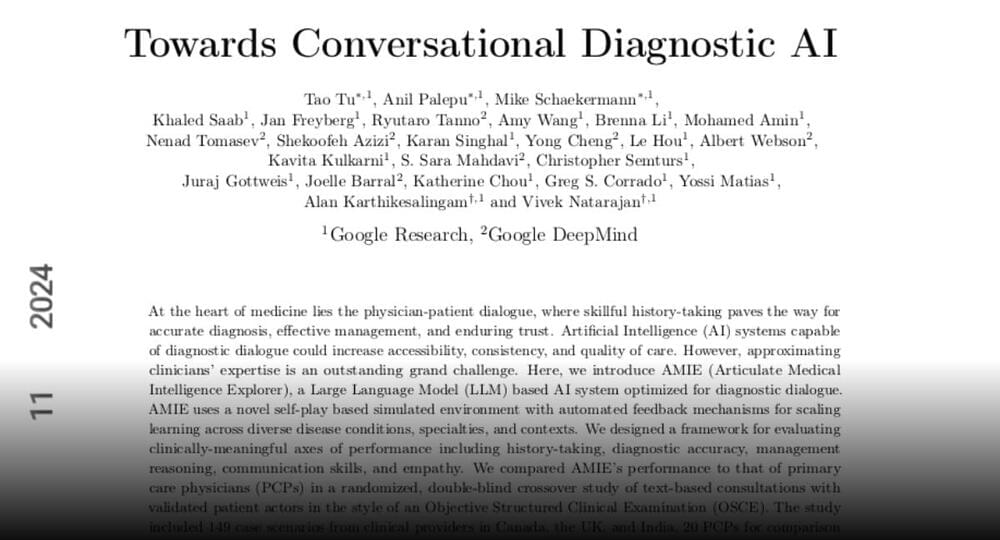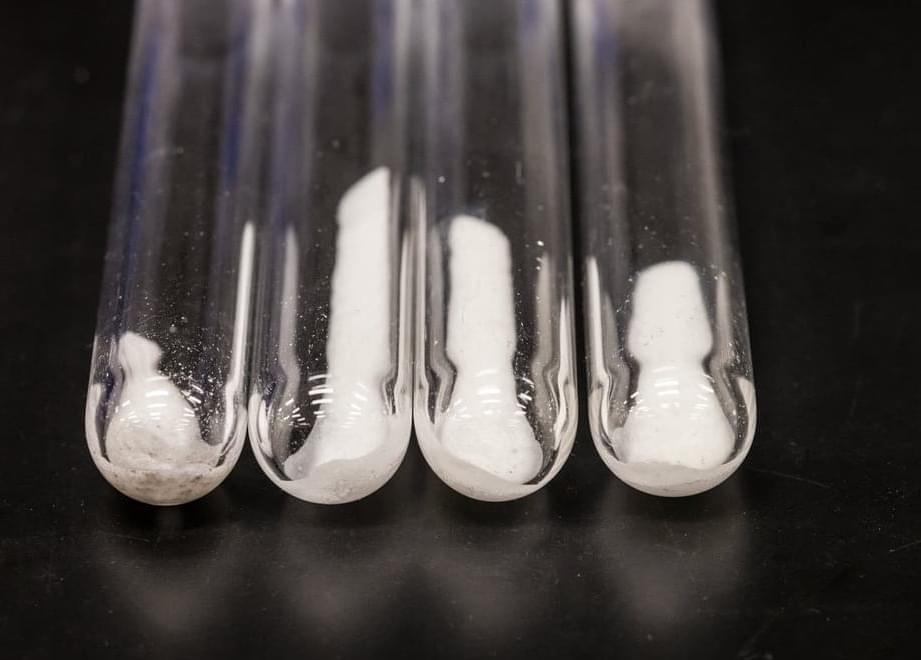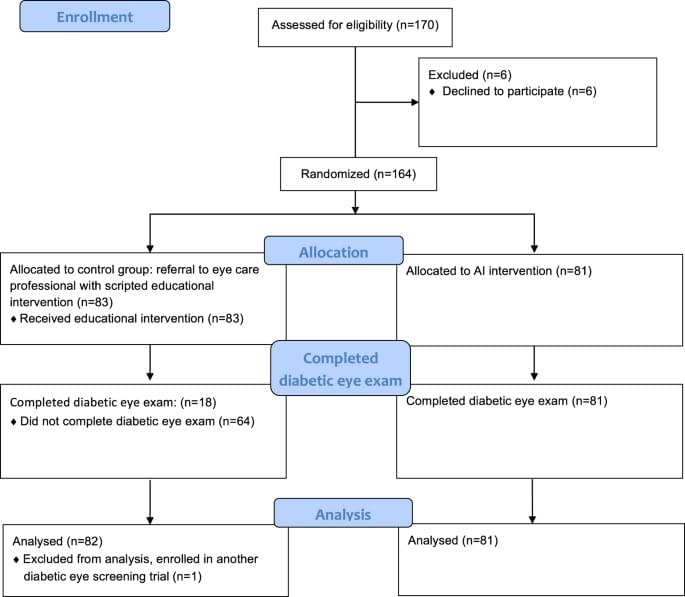Page 1555
Jan 12, 2024
Curing Disease With Genetics And AI
Posted by Shubham Ghosh Roy in categories: biotech/medical, blockchains, genetics, robotics/AI

Manolis Kellis, an accomplished Computer Science Professor at MIT and member of the Broad Institute, is a trailblazer in computational biology. Renowned for leading the MIT Computational Biology Group, his impactful research spans disease genetics, epigenomics, and gene circuitry. With numerous cited publications and leadership in transformative genomics projects, Kellis has garnered prestigious accolades, including the PECASE and Sloan Fellowship, shaping the field with his international perspective from Greece and France to the US.
Fuel your success with Forbes. Gain unlimited access to premium journalism, including breaking news, groundbreaking in-depth reported stories, daily digests and more. Plus, members get a front-row seat at members-only events with leading thinkers and doers, access to premium video that can help you get ahead, an ad-light experience, early access to select products including NFT drops and more:
Jan 12, 2024
See Samsung’s fantastic vision of foldable displays
Posted by Shubham Ghosh Roy in categories: innovation, mobile phones
Samsung Display showcased the future of display technology at the Consumer Electronics Show (CES) 2024 in Las Vegas. Under the theme ‘All-in Innovative Tech: Paving the New Journey,’ the company demonstrated innovative technologies that promise to revolutionize various industries.
Following the success of the Galaxy Flip and Fold lineups, Samsung Display unveiled the In&Out Flip, a foldable device with a flip-phone design that folds 360 degrees in and out.
Unlike conventional foldable phones, the In&Out Flip boasts a single display that can be used even when folded. The company said the sleek and thin device underwent rigorous durability testing to prove its resilience in extreme conditions.
Jan 11, 2024
AI makes new material that could dramatically change how batteries work
Posted by Shubham Ghosh Roy in categories: materials, robotics/AI
Jan 11, 2024
Cancer Treatment: Can Less Be More?
Posted by Shubham Ghosh Roy in categories: biotech/medical, finance
AN EXTRAORDINARY WAVE OF PROGRESS against cancer has occurred in the United States over the past three decades. From its peak in 1991, cancer mortality has declined by more than a third. Smoking cessation, human papillomavirus (HPV) vaccination, improved cancer screening and better cancer treatments are poised to push cancer deaths even lower. In 2022, this prompted President Joe Biden to reignite the Cancer Moonshot launched in 2016 with a goal of reducing cancer death rates even further—cutting them in half over the next 25 years.
With growing success in the treatment of many cancers has come a reexamination of the profound impact cancer treatment has on those with the disease. A cancer survivor faces a plethora of physical, emotional, social and financial challenges. Surgery, radiation therapy, chemotherapy and immunotherapy are all plagued by short-term toxicities and longer-term complications that can dominate life during and after cancer treatment and impinge upon its quality.
Fortunately, the same detailed knowledge of cancer genes and gene programs that has led to spectacular advances in cancer treatment may also improve cancer survivorship. Molecular profiling of individual cancers is now commonly used in cancer treatment planning. Breast cancer, long known to be a highly heterogeneous collection of diseases, provides a compelling example. For many years, testing breast tumor tissues for the presence of the estrogen receptor (ER), the progesterone receptor (PR) and the human epidermal growth factor receptor 2 (HER2) has been essential to steering women with breast cancer toward or away from endocrine therapies or agents like Herceptin (trastuzumab) that bind to HER2. Newer molecular profiling tools—including Oncotype DX, MammaPrint, Breast Cancer Index, EndoPredict and the Prosigna Breast Cancer Prognostic Gene Signature Assay—have further refined and individualized breast cancer treatment decision-making.
Jan 11, 2024
AI breakthrough creates images from nothing
Posted by Dan Kummer in categories: information science, law, robotics/AI
A new, potentially revolutionary artificial intelligence framework called “Blackout Diffusion” generates images from a completely empty picture, meaning that the machine-learning algorithm, unlike other generative diffusion models, does not require initiating a “random seed” to get started. Blackout Diffusion, presented at the recent International Conference on Machine Learning (“Blackout Diffusion: Generative Diffusion Models in Discrete-State Spaces”), generates samples that are comparable to the current diffusion models such as DALL-E or Midjourney, but require fewer computational resources than these models.
“Generative modeling is bringing in the next industrial revolution with its capability to assist many tasks, such as generation of software code, legal documents and even art,” said Javier Santos, an AI researcher at Los Alamos National Laboratory and co-author of Blackout Diffusion. “Generative modeling could be leveraged for making scientific discoveries, and our team’s work laid down the foundation and practical algorithms for applying generative diffusion modeling to scientific problems that are not continuous in nature.”
A new generative AI model can create images from a blank frame. (Image: Los Alamos National Laboratory)
Jan 11, 2024
Autonomous artificial intelligence increases screening and follow-up for diabetic retinopathy in youth: the ACCESS randomized control trial
Posted by Cecile G. Tamura in categories: biotech/medical, robotics/AI
Diabetic retinopathy is a complication of diabetes that can be prevented through screening, yet adherence is low. Here, the authors show that autonomous AI increases diabetic eye exam completion in a diverse cohort of youth with diabetes.
Jan 11, 2024
Accelerating the Iteration Cycle from Design to Deployment in Autonomous Fabrication
Posted by Chris Smedley in categories: robotics/AI, sustainability
Welcome to the thrilling world of autonomous fabrication, where the only constant is change, and the speed of that change is akin to a caffeinated cheetah on a treadmill.
This blog focuses on revolutionizing the iteration cycle in autonomous fabrication, emphasizing the need for rapid and efficient transitions from design to deployment.
The overarching theme is the synergy between advanced technology and a transformative mindset in manufacturing, aiming for smarter, more sustainable, and compliant operations.
Jan 11, 2024
Scientists Discover Genetic Mutation That Seems to Protect Against Parkinson’s
Posted by Quinn Sena in categories: biotech/medical, genetics, health
We don’t have a cure for Parkinson’s disease yet, but a recently discovered mutation in mitochondrial DNA that seems to protect the body against the condition could one day point the way to one. Discovered in a small protein called SHLP2, the genetic variant is relatively rare – found in just 1 percent of Europeans. Yet an analysis of the health records of 16,167 people led by researchers from the University of Southern California (USC) suggests…
Jan 11, 2024
Space Force to award multiple contracts for ‘Digital Spaceport’ up to $1.9 million each
Posted by Genevieve Klien in categories: business, space
WASHINGTON — SpaceWERX, the technology arm of the U.S. Space Force, is looking to award a new round of Small Business Innovation Research contracts worth up to $1.9 million each for IT infrastructure upgrades at the Eastern and Western launch ranges.
The project known as Digital Spaceport of the Future was announced earlier this month. SpaceWERX officials on Jan. 10 said launch ranges are in dire need of IT upgrades and are seeking proposals from the private sector by February 7.
Maj. Jareth Lamb, deputy director of SpaceWERX, said during a briefing that the contracts will be “direct to Phase 2” SBIR/STTR agreements. These are Small Business Innovation Research/Small Business Technology Transfer deals that require collaboration between small businesses and non-profit research institutions.

















